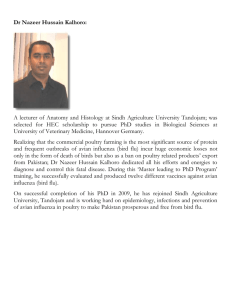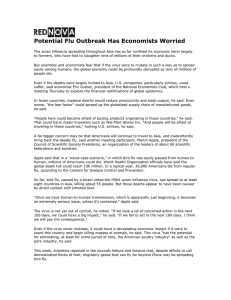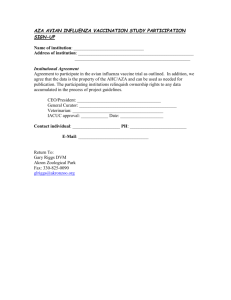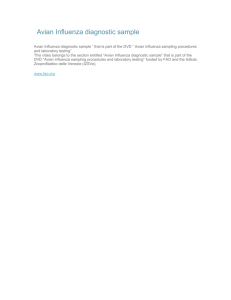Birdfluletter1
advertisement
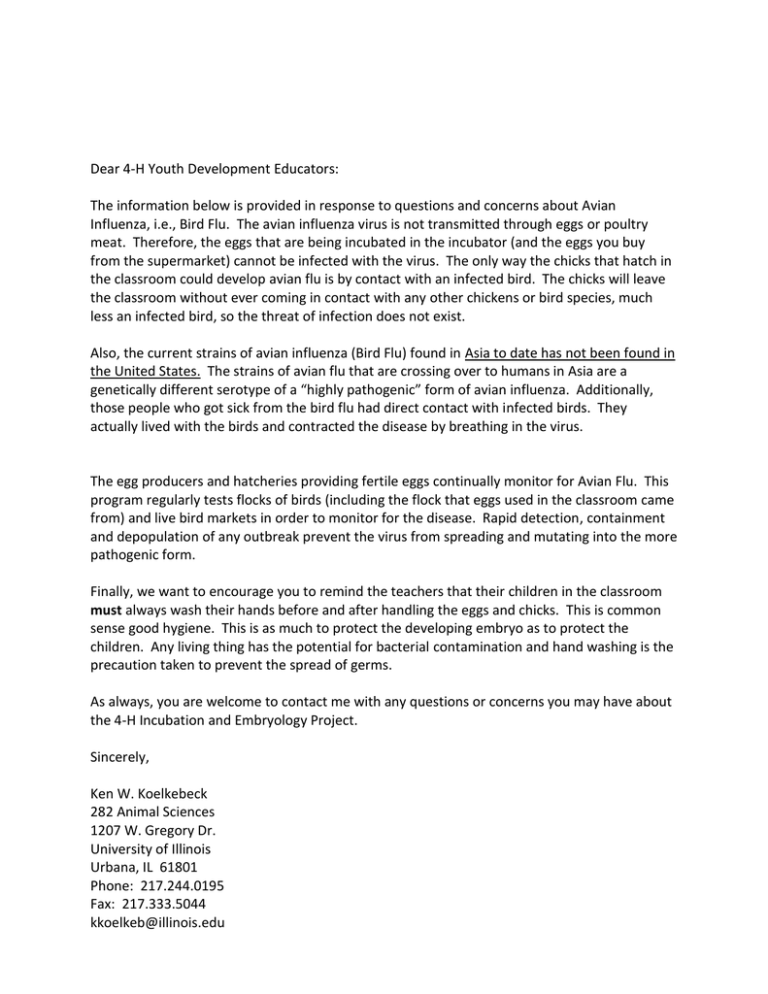
Dear 4-H Youth Development Educators: The information below is provided in response to questions and concerns about Avian Influenza, i.e., Bird Flu. The avian influenza virus is not transmitted through eggs or poultry meat. Therefore, the eggs that are being incubated in the incubator (and the eggs you buy from the supermarket) cannot be infected with the virus. The only way the chicks that hatch in the classroom could develop avian flu is by contact with an infected bird. The chicks will leave the classroom without ever coming in contact with any other chickens or bird species, much less an infected bird, so the threat of infection does not exist. Also, the current strains of avian influenza (Bird Flu) found in Asia to date has not been found in the United States. The strains of avian flu that are crossing over to humans in Asia are a genetically different serotype of a “highly pathogenic” form of avian influenza. Additionally, those people who got sick from the bird flu had direct contact with infected birds. They actually lived with the birds and contracted the disease by breathing in the virus. The egg producers and hatcheries providing fertile eggs continually monitor for Avian Flu. This program regularly tests flocks of birds (including the flock that eggs used in the classroom came from) and live bird markets in order to monitor for the disease. Rapid detection, containment and depopulation of any outbreak prevent the virus from spreading and mutating into the more pathogenic form. Finally, we want to encourage you to remind the teachers that their children in the classroom must always wash their hands before and after handling the eggs and chicks. This is common sense good hygiene. This is as much to protect the developing embryo as to protect the children. Any living thing has the potential for bacterial contamination and hand washing is the precaution taken to prevent the spread of germs. As always, you are welcome to contact me with any questions or concerns you may have about the 4-H Incubation and Embryology Project. Sincerely, Ken W. Koelkebeck 282 Animal Sciences 1207 W. Gregory Dr. University of Illinois Urbana, IL 61801 Phone: 217.244.0195 Fax: 217.333.5044 kkoelkeb@illinois.edu
